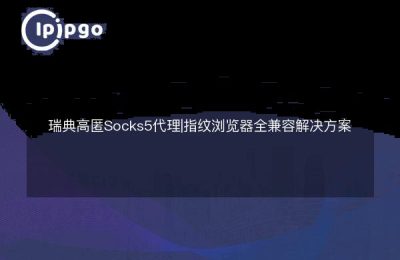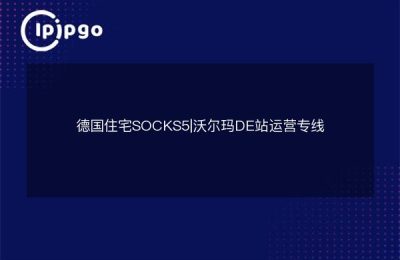
What is a Socks5 proxy?
Before we dive into how to deploy a Socks5 proxy using Cloudflare, let's first understand what a Socks5 proxy is.A Socks5 proxy is an Internet protocol that allows clients to communicate with a target server through a proxy server. Unlike traditional HTTP proxies, the Socks5 proxy is capable of handling all types of traffic, including HTTP, HTTPS, FTP, and more. It has the advantage of being fast, secure, and able to support the UDP protocol.
Why Cloudflare?
Cloudflare is a globally recognized network service provider that focuses on content delivery network (CDN), network security and other services. There are many reasons to choose Cloudflare, firstly, it has a wide global network coverage and is able to provide low latency and high speed services. Secondly, Cloudflare also provides a full set of security features, including DDoS protection, web application firewall, etc. These features can effectively protect your proxy server from attacks.
preliminary
Before you start deploying the Socks5 proxy, you need to do some preparation. First, you need a Cloudflare account. If you don't have an account yet, you can head over to the Cloudflare website and sign up for one. Second, you need a server, preferably a VPS (Virtual Private Server), which will be used to run the Socks5 proxy service. Finally, you will need some basic knowledge of Linux operations, as we will be using the command line to install and configure the Socks5 proxy.
Installing the Socks5 proxy
First, we need to install Socks5 proxy software on our server. Here we choose Dante, an open source Socks proxy server. Here are the steps to install Dante on your Ubuntu system:
sudo apt-get update
sudo apt-get install dante-serverAfter the installation is complete, we need to configure Dante. open the configuration file:
sudo nano /etc/danted.confIn the configuration file, you need to make some changes. Below is a simple configuration example:
logoutput: syslog
internal: eth0 port = 1080
external: eth0
method: username none
client pass {
from: 0.0.0.0/0 to: 0.0.0.0/0
log: connect disconnect
}
server pass {
from: 0.0.0.0/0 to: 0.0.0.0/0
log: connect disconnect
}After saving and closing the configuration file, restart the Dante service:
sudo systemctl restart dantedProtecting Your Proxy Servers with Cloudflare
Now, we have successfully installed and configured the Socks5 proxy on our server. Next, we need to secure our proxy server using Cloudflare. First, log into your Cloudflare account and add the domain name of your server. Then, head over to the DNS settings page and add an A record pointing to your server's IP address.
On the DNS settings page, you'll see a "Proxy Status" option, make sure it's enabled (shown as an orange cloud icon). This way, all traffic going through the domain will pass through Cloudflare's network, thus gaining DDoS protection and other security features.
Configuring the Firewall
To ensure that only traffic passing through Cloudflare can access your Socks5 proxy server, we need to configure firewall rules. Here are the steps to configure a firewall using UFW (Uncomplicated Firewall) on an Ubuntu system:
sudo ufw allow 22/tcp
sudo ufw allow from 173.245.48.0/20 to any port 1080
sudo ufw allow from 103.21.244.0/22 to any port 1080
sudo ufw allow from 103.22.200.0/22 to any port 1080
sudo ufw allow from 103.31.4.0/22 to any port 1080
sudo ufw enableThese rules allow traffic from the Cloudflare IP segment to access your Socks5 proxy port (1080) while blocking traffic from other sources.
Testing and Optimization
After completing the above steps, your Socks5 proxy should be working properly. You can use some tools to test the performance and stability of the proxy, such as Speedtest or Ping command. Based on the test results, you can further optimize your server configuration, such as adjusting Dante's parameters, optimizing system kernel parameters and so on.
summarize
In this article, we learned how to deploy a Socks5 proxy using Cloudflare. From installing Dante to configuring the firewall, to using Cloudflare to protect the proxy server, each step explains the specific operation steps in detail. We hope this article can help you deploy and use Socks5 proxy smoothly to improve network security and access speed.
Remember, network security is an ongoing process that requires constant monitoring and optimization. I wish you all the best with the Socks5 proxy!








